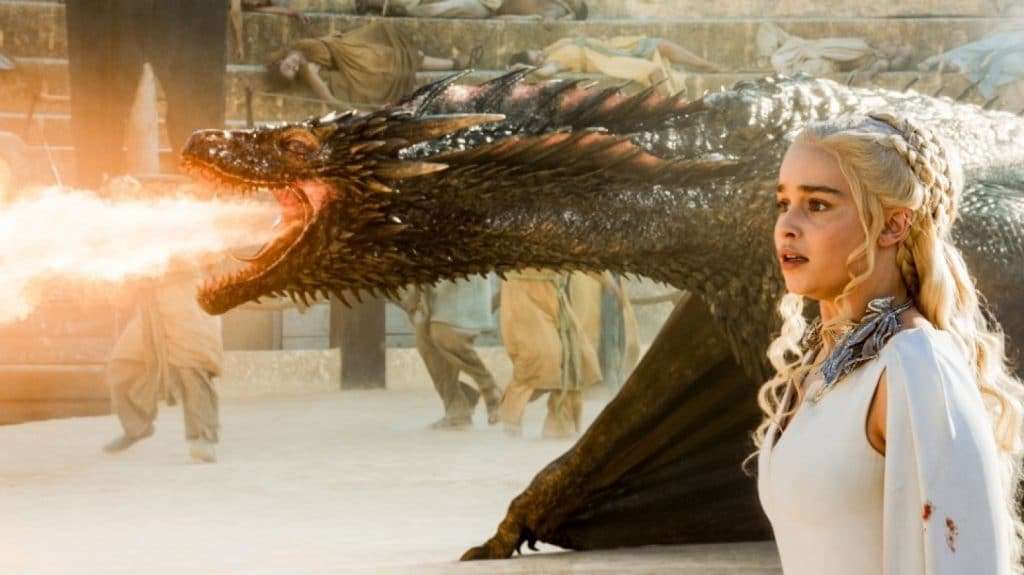The Volokh Conspiracy
Mostly law professors | Sometimes contrarian | Often libertarian | Always independent
The politics of "Game of Thrones"

Tonight, the long-awaited first episode of Season 7 of the hit fantasy series Game of Thrones will finally air. I have written quite a bit on the political themes in the show, which is based on a series of novels by George R.R. Martin. Here are some links to my work on that subject. Please note that there are some spoilers here regarding the events of previous seasons.
Last year, I discussed Game of Thrones in an article on the politics of several science fiction and fantasy series. Here is an excerpt:
While the series addresses a range of political issues, its perspective on them is not easily classified… The one point that comes through repeatedly is Martin's skepticism about political elites.
Nearly all the contenders for the throne of Westeros and the rulership of its various regions can be divided into the outright evil (such as the psychopathic King Joffrey) and the well-intentioned, but still disastrous, such as Robb Stark. Even relatively sympathetic elite characters turn out, on closer inspection, to care far more about the honor and prestige of their noble houses than the actual well-being of the people…
The one major potential exception to Martin's negative view of elites is Daenerys Targaryen, the warrior queen seeking to restore a dynasty that was overthrown years before the series began. In the course of her campaign to seize the throne, she frees thousands of slaves, and takes other measures to increase the welfare of ordinary people. Especially in the TV series (which has gone farther in time than the books), there is evidence that she intends to reform government for the better, not just seize control of it for her own purposes.
But even Daenerys' record is far from unequivocally a good one. Critics such as Bryan Caplan argue that her wars are counterproductive, ultimately causing more harm than good. While I think the criticism is overblown, the jury on this issue is still out…
In the meantime, the rich ambiguities in Martin's vision enable readers with different views to put their own gloss on the story. Libertarians will interpret his cynicism about elites as a critique of government power generally. But others might point to the fact that the governments in question are undemocratic. If the rulers of Westeros had to win election at the polls, perhaps they would do more to promote the interests of the people.
One can argue that Jon Snow and Tyrion Lannister are also elites who care about the welfare of the people and are at least somewhat effective in promoting it. Perhaps so. But, as a bastard without title, Jon is not really a member of the political elite, at least not until his elevation to the position of King of the North near the end of Season 6.
Tyrion is more clearly part of the elite from the very beginning. But he also does not show much concern for ordinary people - other than those within his immediate orbit - until fairly late in the series. After all, he spends most of the first several seasons working to bolster the power of his family, who are among the leading oppressors of the population of Westeros.
Even if we add these two characters to the list of exceptions, it is still true that the overwhelming majority of political leaders in the series are portrayed negatively. The problem seems to be structural, not just a function of the particular leaders in power. Alternatively, it may be that leaders' personalities' are indeed the cause of the trouble, but the system ensures that "the worst get on top," as F.A. Hayek famously put it.
In this 2013 post, I discussed the significance of the "Red Wedding," one of the most shocking and controversial episodes in the history of the series. Back in 2011, when the series first began, I commented on some of the political issues raised by the struggle for the Iron Throne, building on an Atlantic symposium about the series.
Yesterday, Joshua Tucker of the Washington Post's Monkey Cage blog, asked several political scientists to give Daenerys Targaryen their professional advice on how to effectively seize and hold power. The Mother of Dragons seems to be doing pretty well even without the help of academic experts. But the advice is interesting, nonetheless!
The one certainty of the series may be "Valar morghulis": ultimately, "all men must die." Sad, but true. Still, we can have fun analyzing the politics of Westeros in the meantime.



Show Comments (0)